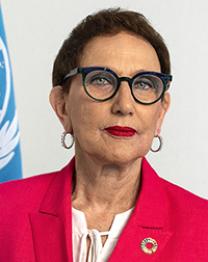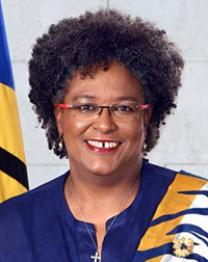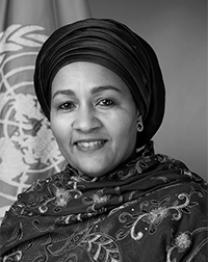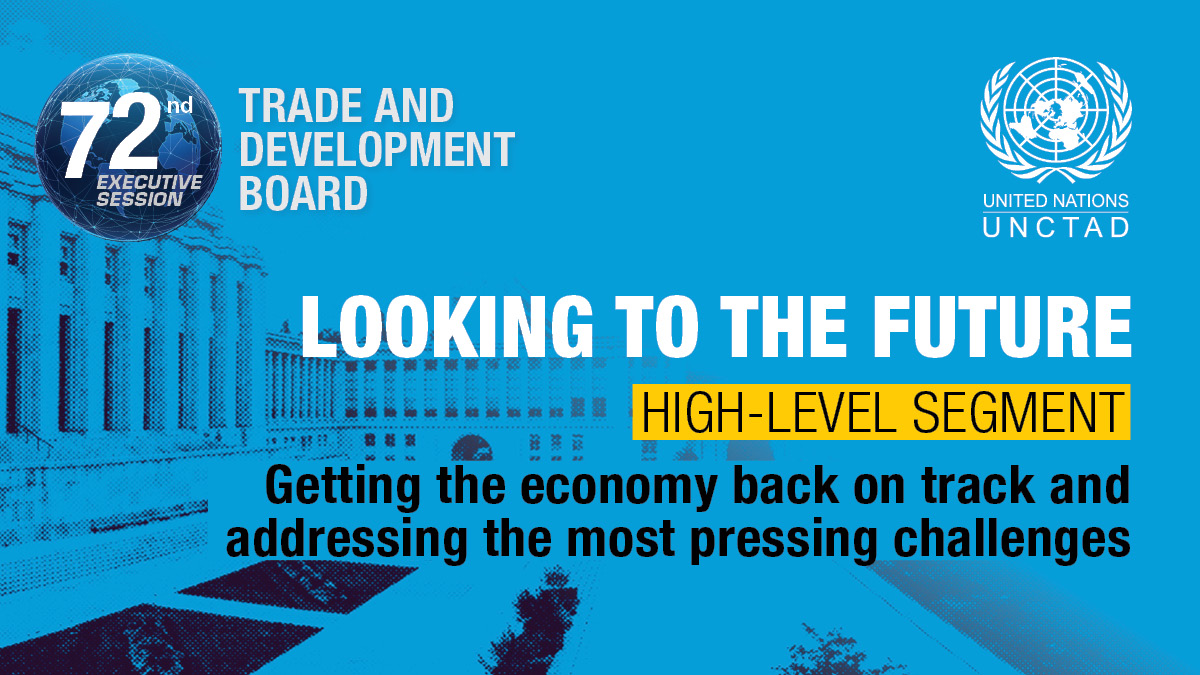
Looking to the future: Getting the economy back on track and addressing the most pressing challenges
A once-in-a-generation global cost-of-living crisis has been unfolding since 2020 and, with the war in Ukraine, it is now at critical levels. In the last three years, the number of people who are food insecure has almost tripled to 350 million people.
Poverty has risen by 70 million people in just the first three months of the year. Thirty per cent of middle-income countries and 60 per cent of low-income countries are near debt distress. Inflation is at multi-decades highs.
Climate change is hitting harder each year, pilling up costs at a time when countries lack the resources to deal with disaster, let alone invest in their long-term development and achievement of the United Nations Sustainable Development Goals.
Trade is being disrupted, social unrest is rising, and peace and security are under threat.
These challenges are all interconnected. To resolve the current cascade of crises, systemic and transformative action will be needed, focused on the three areas of work highlighted above: bringing prices down; increasing liquidity; and preventing an even wider crisis in 2023. Cooperation in this context is an imperative.
Objective
The objective of the high-level segment discussion at the seventy-second executive session of the Trade and Development Board is to enhance political will and cooperation to face the current pressing challenges, through systemic and transformative action that allows economies to get back on track.
Key questions
- What kinds of systemic action are needed to bring commodity prices down? How is trade policy, including recent United Nations-backed efforts such as the Black Sea Grain Initiative and the agreement for unimpeded access to Russian food and fertilizers, able to help in the current context? How can further food trade export restrictions be avoided?
- How can the world deal with an emerging finance and debt crisis in developing countries? How can countries “undo the knot” and obtain sufficient fiscal resources at a time when capital flight is high? What is the role of special drawing rights and multilateral development banks in finding a solution?
- With winter looming on the horizon in the Northern Hemisphere, how can cooperation be sustained to avoid solutions that leave out many vulnerable countries? How can a global scramble for energy resources, particularly natural gas, be avoided?
- In light of the twenty-seventh Conference of the Parties in November 2022, how can climate funding for developing countries be fostered? How can the international community go from the billions at hand to the trillions needed in the quest to fund the climate transition and to achieve the Sustainable Development Goals?
Format
The session will be hybrid, and the UNCTAD Secretary-General will convene a panel discussion. People who are unable to attend the session in person can follow the discussion on UN Web TV.
Programme
Introductory remarks:
- Ms. Rebeca Grynspan, Secretary-General of UNCTAD
Panel discussion:
- Ms. Mia Amor Mottley, Prime Minister of Barbados
- Ms. Sigrid Kaag, First Deputy Prime Minister and Minister of Finance of the Netherlands
- Ms. Amina Mohammed, Deputy Secretary-General of the United Nations
Interactive debate with Member States of UNCTAD
Closing remarks by Ms. Rebeca Grynspan, Secretary-General of UNCTAD
In September 2021, Rebeca Grynspan was appointed Secretary-General of the United Nations Conference on Trade and Development (UNCTAD), becoming the first woman to lead the organization in its 60-year history.
Rebeca Grynspan, an economist and former Vice President of Costa Rica, is an experienced leader of international institutions with a substantive track record in government, UN diplomacy, economic policy and multilateral cooperation at the global level.
Prior to joining the United Nations, she was Vice President of Costa Rica and held cabinet positions as Minister of Housing, Minister Coordinator of Economic and Social Affairs and Deputy Finance Minister.
Previously, she served as Secretary-General of the Ibero-American Conference (2014–2021), chairing regional summits of Heads of State and Government; United Nations Under-Secretary-General and Associate Administrator of the United Nations Development Programme (UNDP); and UNDP Regional Director for Latin America and the Caribbean. She was a member of the UN Commission for the Reconstruction of Haiti, representing the UN Secretary-General.
At UNCTAD, Grynspan has been at the centre of critical negotiations to address global trade and development challenges. She played a decisive role in the successful Black Sea Grain Initiative brokered between the UN, Türkiye, the Russian Federation and Ukraine, which enabled the safe export of over 32 million tons of grain, lowered global food prices by 22% and prevented millions from falling into food insecurity. She also leads the UN Global Crisis Response Group on food, energy and finance, and has represented the UN in G20 summits.
Her leadership has been recognized widely. In 2024, she received the Doha Negotiator of the Year Award for spearheading UN efforts to restore Black Sea trade routes. In 2025, Spain’s Ministry of Foreign Affairs, European Union and Cooperation awarded her the inaugural Isabel Oyarzábal Women in Multilateralism International Prize for her contribution to multilateralism.
Ms. Grynspan holds degrees in economics from the University of Costa Rica and the University of Sussex, and honorary doctorates from several European universities.
The Honourable Mia Amor Mottley, Q.C., M.P., became Barbados' eighth and first female Prime Minister on 25 May 2018.
Ms. Mottley was elected to the Parliament of Barbados in September 1994 as part of the new Barbados Labour Party Government.
Prior to that, she served as one of two Opposition Senators between 1991 and 1994. One of the youngest persons ever to be assigned a ministerial portfolio, Ms. Mottley was appointed Minister of Education, Youth Affairs and Culture from 1994 to 2001.
She later served as Attorney General and Deputy Prime Minister of Barbados from 2001 to 2008 and was the first female to hold that position.
Ms. Mottley is an Attorney-at-law with a degree from the London School of Economics, specialising in advocacy. She is also a Barrister of the Bar of England and Wales.
In 2002, she became a member of the Local Privy Council. She was also admitted to the Inner Bar, becoming the youngest ever Queens Counsel in Barbados.
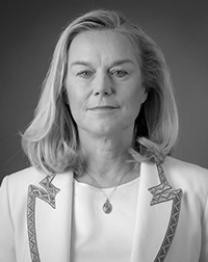
Sigrid Kaag is Minister of Finance and Deputy Prime Minister of the Netherlands since January 2022. She previously served as Minister for Foreign Trade and Development Cooperation from October 2017 to August 2021 and Minister of Foreign Affairs from May 2021 to September 2021.
Prior to that, Sigrid Kaag worked as a diplomat for the United Nations. She served as Assistant Secretary-General for the UN Development Programme (UNDP) in New York from 2010, UN Under-Secretary-General in Syria from 2013 and UN Under-Secretary-General in Lebanon from 2015.
Ms. Amina J. Mohammed is the Deputy Secretary-General of the United Nations and Chair of the United Nations Sustainable Development Group.
Prior to her appointment, Ms. Mohammed served as Minister of Environment of the Federal Republic of Nigeria where she steered the country’s efforts on climate action and efforts to protect the natural environment.
Ms. Mohammed first joined the United Nations in 2012 as Special Adviser to former Secretary-General Ban Ki-moon with the responsibility for post-2015 development planning. She led the process that resulted in global agreement around the 2030 Agenda for Sustainable Development and the creation of the Sustainable Development Goals.
Ms. Mohammed began her career working on the design of schools and clinics in Nigeria. She served as an advocate focused on increasing access to education and other social services, before moving into the public sector, where she rose to the position of adviser to four successive Presidents on poverty, public sector reform, and sustainable development.
Ms. Mohammed has been conferred several honorary doctorates and has served as an adjunct professor, lecturing on international development. The recipient of various global awards, Ms. Mohammed has served on numerous international advisory boards and panels.



